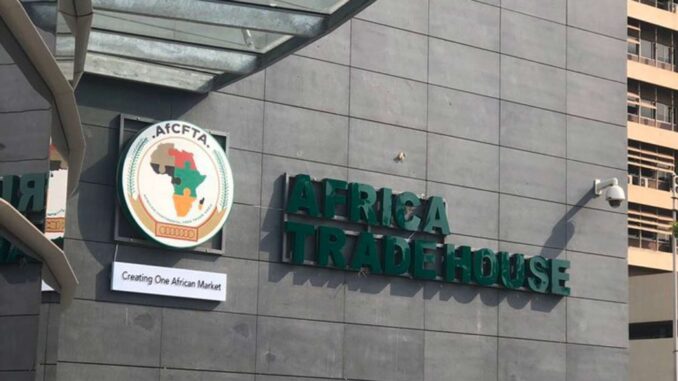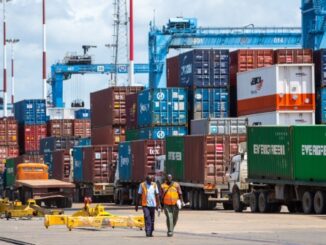
Nigeria finally gave the African Continental Free Trade Area, AfCFTA, Agreement its full, warm embrace last week Tuesday, July 16, 2024, during the launch of its Guided Trade Initiative, GTI, and shipment of exports to five African countries, its first since the establishment of the Agreement’s office in Abuja about five years ago.
The goods, which included bags, ceramics, textiles, cables, smart cards, cables, clinkers, black soap, native starch, shea butter and others, were headed to Cameroon, Algeria, Kenya, Uganda and Egypt.
President Bola Tinubu, who was represented by the Secretary to the Federal Government, George Akume, at the event in Lagos, pledged that Nigeria would do everything in its power to maximally leverage the $50 billion potentials of the Agreement for the benefit of all levels of production in the economy.
Speed Painting, like medicine, leaves no room for error — Dr. Ojeabuo, A Speed Painter0:00 / 0:00
The African Union, AU, formally adopted the AfCFTA on May 30, 2019. Though the Federal Executive Council, FEC, had approved the Agreement, Nigeria delayed signing the framework due to misgivings by some critical domestic stakeholders.
As the economy with the largest potential in Africa, Nigeria’s manufacturing sector stands to massively increase the nation’s exports to other parts of Africa which stand at an annual average of 14 per cent. Leveraging the non-tariff cover for the vast array of goods, Nigeria will also jump its total Africa imports well beyond the 3.2 per cent annual average.
The AfCFTA covers 55-member African states with overall population of about 1.3 billion and combined economy of about $3.4 trillion. Unfortunately, only about 14.4 per cent goods made in Africa are traded among AfCFTA member-nations. It is the vision of the African Union to grow this internal trade potential through the AfCFTA initiative to at least 40 per cent under its Agenda 2063.
Agenda 2063 will hopefully help sensitise member-states to refocus more on political, diplomatic, economic and social reintegration of ties within the continent in the same manner that other continental groups like the European Union, EU, have successfully done.
Apart from residual post-colonial hang-ups and the dependency syndrome among most African leaders, poor communication and transportation linkages must be improved to make the AfCFTA truly relevant.
It is unfortunate that Nigeria is going full-throttle at this juncture where our economy and manufacturing edge are at their weakest, what with many factory shut-downs and mass departures of multinational industries. We are, however, convinced that the situation can be quickly reversed because our huge population and lucrative potentials are too good for anyone to ignore.
The AfCFTA, if brought to fruition, will be a major instrument to ward off or blunt the teeth of creeping economic recolonisation being actively plotted by predators such as China, India, Russia, and the ubiquitous West and their corporate sharks.
For their collective future, Africans must trade together.
END


Be the first to comment